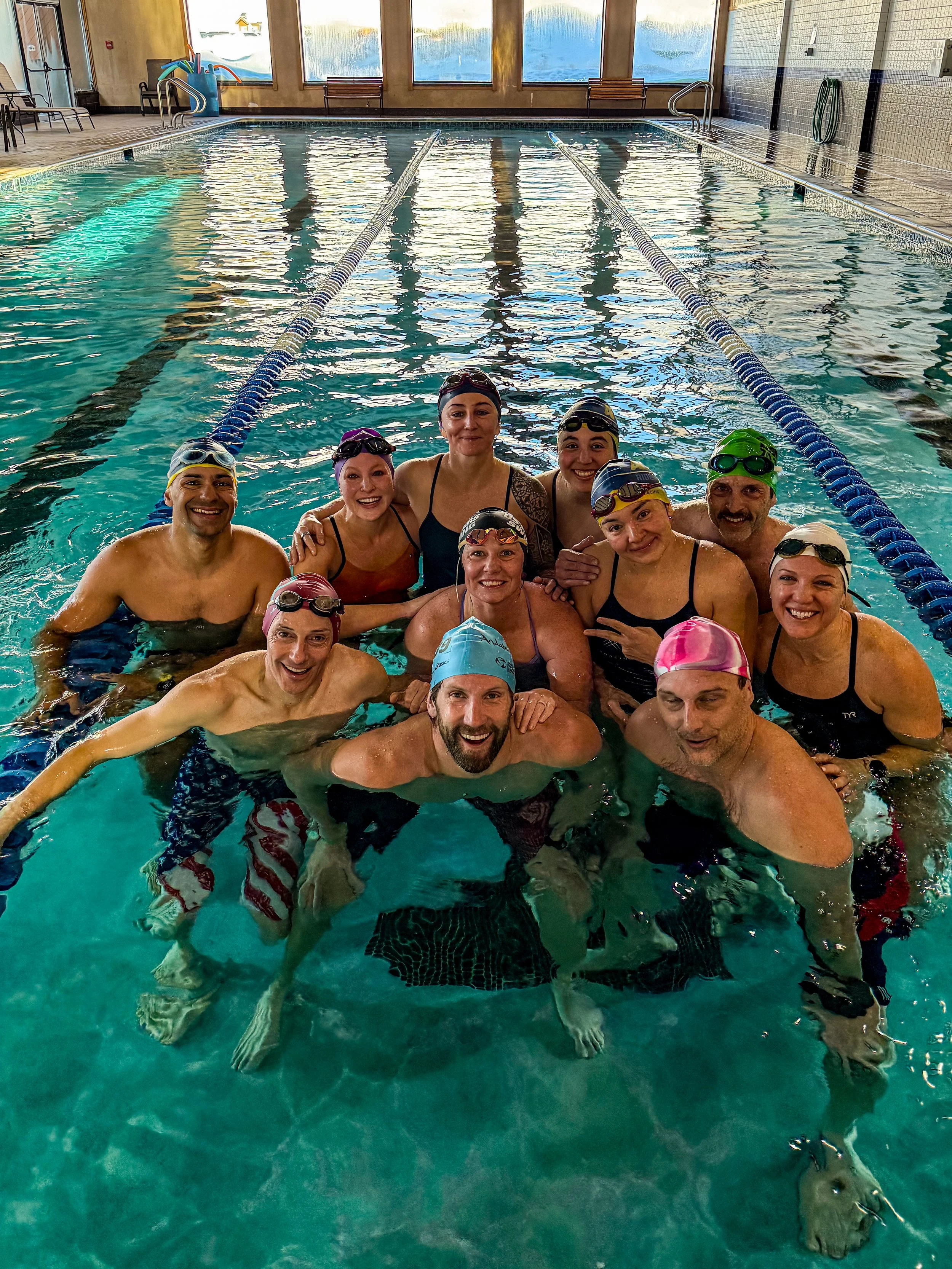Triathlon Success: Keep the Main Thing the Main Thing
A Quick Note:
Before we go deeper, remember this: your main thing is your main thing. It’s unique to you—whether it’s having fun, doing cool shi*t with cool people, chasing epic experiences, winning big, or just nailing the moment you’re in. It can change over time, and that’s okay. Whatever it is right now, give it your full focus. It matters.
Don’t Overcomplicate Things:
In a sport as demanding as triathlon or even in your life, it’s easy to fall into the trap of overcomplicating things. One week it’s a new training hack. the next, it’s a gadget promising faster splits, or worrying about every single metric for every minute of every day. But if you’re serious about getting better, it’s time to cut through the noise.
Triathlon success comes down to four things:
Your ability to be consistent
Your ability to raise your floor (your capacity to recover and buffer lactate)
Your ability to handle dynamic changes and recover
Your mindset—how you show up and view the challenge
Let’s dig into why these are the only things that truly matter—and why you should stop wasting energy on everything else.
1. Consistency Is King
You’ve heard it before, but it bears repeating: consistency is what separates high performers from everyone else.
Anyone can crush a hard workout now and then. But what really matters is stringing together weeks, months, and years of focused, repeatable training.
Why? Because consistency:
Builds aerobic capacity over time
Allows for gradual, injury-free progress
Creates mental and physical habits that stick
Training doesn’t have to be perfect. It just needs to be done regularly. Even if a session is shorter than planned or lower intensity, showing up matters.
“You don’t rise to the level of your goals, you fall to the level of your preparation.”
2. Raise Your Floor, Not Just Your Ceiling
Many athletes obsess over peak output—how fast they can go when everything is perfect. But races aren’t won at your max. They’re won by what you can sustain.
Your “floor” is your aerobic baseline—the pace or power your body can handle with minimal fatigue or lactate buildup. The higher your floor, the better your buffer zone. You can go harder, longer, and recover faster between surges.
To raise your floor:
Prioritize aerobic volume and steady-state efforts
Use tempo and threshold work to increase lactate tolerance
Recover intentionally so your body adapts and grows stronger
Your floor is your foundation. Build it wide and strong.
3. Adaptability Wins Races
Triathlon is dynamic by nature. From unpredictable weather to mid-race cramping or nutrition fails, race day never goes perfectly to plan. But equally important, they are adaptable physiologically. The best athletes aren’t just fit—they’re flexible. They can adjust, recover, and respond in real time.
To improve your adaptability:
Punch & Settle: Include training scenarios with changing conditions and pacing. This is what we like to call at AP Racing “Punch & Settle Work.”
Control Matters: Be the person in charge: When you can handle variable pacing, you can inflict your will upon a race or race course. This gives you control. Control matters and you get it by training it…and getting a little ‘out of control’ sometimes.
In other words, prepare for unpredictability or prepare to BE DYNAMIC. Your ability to recover and rebound from unexpected moments will often decide your outcome.
4. Don’t lie to yourself.
Triathlon is tough, and we all know it. Managing schedules, workouts, and balancing everything can be challenging. Many often deceive themselves about their capabilities. Don't say you can't do something just because it's hard or inconvenient; usually, it can be managed. Also, avoid claiming you have 40 hours a week to train or that you possess skills you don't. Be realistic about your abilities and the time you can commit. It's easy to get carried away, but we need to be honest with ourselves regularly to achieve success.
Stop the Nonsense. Get Back to the Basics.
Let’s be honest: most of the “tips and tricks” floating around endurance sports media are distractions. The core principles of triathlon success haven’t changed, and they aren’t flashy.
What works is simple:
Train consistently
Raise your floor
Be ready to adapt
Don’t make it harder than it is—and be grateful you get to do it
Everything else? Noise.
Keep the main thing the main thing.






